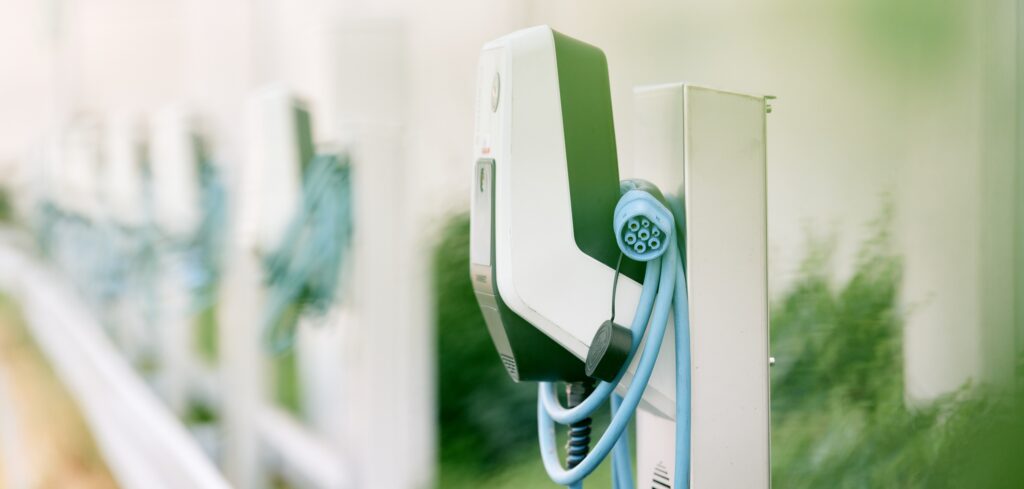When asked what parcel logistics will look like 25 years from now, Dennis Kollmann, Hermes Germany’s chief sales officer, discussed a variety of trends.
 “It all comes down to customers and what they want,” muses Kollmann. “I’m reminded of that quote by Jeff Bezos, when he said, ‘It’s difficult for us to imagine that 10 years from now, customers will want higher prices, less selection or slower delivery.’ Speed, reliability and cost-effectiveness will likely be as important in 2047 as they are today.” Kollmann thinks that what may change are the types of packages people will be sending. Some trend forecasters believe that we’ll be buying far fewer goods on the net, instead preferring to 3D-print things we need at home or in our businesses. But Kollmann believes we’ll always need to purchase things on the net – even if it’s just material needed for the 3D printer – and that certain customer requirements that exist today will continue to do so in 2047. These include demands that delivery services must be emission-free and sustainable, fast and reliable, and inexpensive.
“It all comes down to customers and what they want,” muses Kollmann. “I’m reminded of that quote by Jeff Bezos, when he said, ‘It’s difficult for us to imagine that 10 years from now, customers will want higher prices, less selection or slower delivery.’ Speed, reliability and cost-effectiveness will likely be as important in 2047 as they are today.” Kollmann thinks that what may change are the types of packages people will be sending. Some trend forecasters believe that we’ll be buying far fewer goods on the net, instead preferring to 3D-print things we need at home or in our businesses. But Kollmann believes we’ll always need to purchase things on the net – even if it’s just material needed for the 3D printer – and that certain customer requirements that exist today will continue to do so in 2047. These include demands that delivery services must be emission-free and sustainable, fast and reliable, and inexpensive.
Clean vehicles
With this in mind, Kollmann’s view is that Hermes Germany must expand the use of e-vehicles for deliveries and that e-cars should become the norm. But with a view to 2047, he does wonder whether we will have the resources to produce enough electricity in a sustainable way. “The transformation period might be a challenge but we have to do it – humanity has to do it,” he says. Does he think the entire logistics field will use exclusively electric vehicles or will other fuel types be common in 2047? He notes that Hermes Germany is putting a significant focus on extending its fleet of ecological e-vans but is also experimenting with other technologies such as hydrogen-powered vehicles.
Use of quantum computers
One thing Kollmann can see happening is quantum computing playing a more important role in the logistics area. That’s because solving logistical problems accurately and in real time is extremely complex and requires advanced mathematical calculation capabilities. This is especially true when you have 2,000,000 parcels to deliver every day and need to continually ascertain the best way to do so. Ordinary computers can’t handle these problems satisfactorily today, and Kollmann says that’s the reason Hermes Germany, and its parent company Otto Group, is participating in a research program to apply what’s been learned about quantum computing to thorny logistical problems. “Our industry is the ideal area to test these technologies on and we could really benefit from a technology that is far faster than today’s computers and can perform multiple complex operations simultaneously,” he adds. These would include real-time route optimization taking various external factors (weather, traffic, etc) into account.
Internet-driven networks
Some experts believe that e-commerce – which today takes up a large part of the internet’s activities – will cease to be so important in the next couple of decades and only make up a fraction of what individuals and businesses use the web for. Kollmann says that the internet is already a key factor in controlling and managing all types of networks today and this will have increased considerably by 2047, with massive growth in areas like the Internet of Things (IoT).
Metaverse: how important will it become for parcel logistics?
Kollmann believes that the metaverse will reach maturity, although it’s currently unclear when and in what form. It will enable people to travel virtually as well as to test products, services and functions before purchasing them. “This aspect could be very good for the logistics sector because it would dramatically reduce the rate of product returns and the waste of resources it implies,” he says. “If I’ve been able to thoroughly test something and am sure it meets my needs, I’m much less likely to need to return it.” This would have ecological benefits while solving a huge customer problem – and that’s exactly why Kollmann believes the metaverse has a rosy future within the logistics area.
“Everything comes down to the customer and what they want and need,” he concludes. “Inventions that solve a customer need while remaining reliable, sustainable and energy efficient are the way forward – and any solution that meets all those criteria will come out on top.”
To read Hermes’ piece in full, click here.


